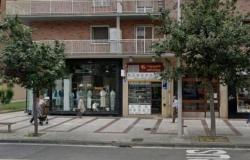The government has the last word on the OPA launched by the BBVA to Sabadell, approved on Wednesday by the National Commission of Markets and Competition (CNMC). The first vice president of the Government and Minister of Finance, María Jesús Montero, said Thursday that “It is still premature to anticipate a decision“In this regard and has assured that the Executive will analyze” rigorously “the details during the coming weeks.
Once the Government receives the report on the operation -without that until Wednesday afternoon it has occurred, Montero has stressed -the Ministry of Economy has 15 days to decide whether to raise the case to the Council of Ministers. If he does, the government You will have to rule within one monthrejecting or maintaining the conditions of the CNMC, modifying them or incorporating new ones if you consider that it can affect the operation to the general interest.
“Now it’s time that the government studies itsee what conditions are the ones that the CNMC has put on the table and what is also the response of the BBVA, ”Montero said in statements to journalists from Seville, where he has participated in the demonstration convened by UGT and CC.OO. on the occasion of the worker’s day.
La CNMC unanimously agreed to approve the operation After the meeting on Wednesday, after having canceled the blackout, the one planned for last Monday. Given the government’s opposition to the operation from the outset, it is taken for granted that the head of Economy will decide to raise the issue to the Council of Ministers within 15 days that the norm includes.
Díaz says that the Government must stop OPA
The second vice president and Minister of Labor, Yolanda Díaz, has gone beyond her Executive’s partner and has described as “Very bad news” the decision of the CNMCbecause in his opinion “he will have harmful effects” for Spain. Among others, he regretted that “they are considering 5,000 layoffs in the sector for the closure of offices”, which will sharpen “a serious democratic problem” such as financial exclusion, preventing access to banking to those citizens who live in less populated areas.
In this sense, Díaz recalled that the last word in this matter is the government, so he has asked the PSOE to stop the operation: “I urge what we do what we have to do, which is to stop this operation.”
Along the same lines, the union leaders of UGT and CC.OO. They have warned that it will be the workers of the financial sector who will lose if the operation is finally approved.
“Spain has been reducing the number of financial entities and that it makes it impossible for the consumer to have the chance of claiming“, has denounced UGT general, Pepe Álvarez, in an interview at the time of the 1st of TVE, where he has urged the government to” be aware that the financial sector is a sector that is effectively private, but responds to a public function “, so he expects” this not ends here. “
“This has consequences on competition between entities, which also has consequences on the price of financial services to citizens or, for example, the closure of branches and the deterioration of services And the digital divide that exists between a good part of the population and financial entities, “CC.oo., Unai Sordo, has criticized in an interview in the same program.
Banking concentration will continue to increase
The truth is that, if the operation was approved, the Spanish banking sector would follow the concentration process initiated after the financial crisis. Today, much of the market falls to five major entities: Banco Santander, BBVA, CaixaBank and, further away, Banco Sabadell and Bankinter, so the operation would aggravate the situation generating a market with three bank giants In Spain.
CNMC itself has detected a series of competition risks if the operation occurs, such as A “worsening” of conditions Commercial for individuals, SMEs and freelancers or “financial exclusion” in municipalities, especially rural.
However, BBVA has committed a series of actions to avoid this impact. In the case of SMEs, he has promised to maintain the circulating lines (financing up to one year) hired with Sabadell and has given his word that he will maintain the credit lines and those destined for the importation and export of products contracted by all self -employed with the Catalan entity.
In turn, in those autonomous communities in which the quota in the credit segment to SMEs of the resulting entity is greater than 30% with an addition greater than 10% (in this case, Catalonia and Balearic Islands), will do the same with the volume of credit to the SMEs that receive at least half of their financing of the two entities.
The CNMC considers it “adequate, sufficient and proportionate” To avoid loss of competition in the sector, although it remains to be seen what the government says. If so, the last step would be the approval of the OPA brochure by the CNMV, which will allow to open the period of acceptance of the offer. Sabadell’s shares would have at least 30 days to decide whether they accept to receive 0.70 euros in cash plus a BBVA action in exchange for 5,3456 of the Catalan bank.






